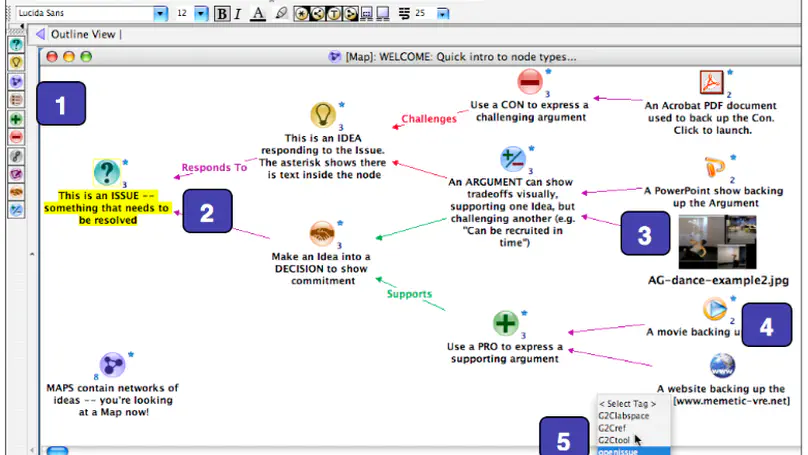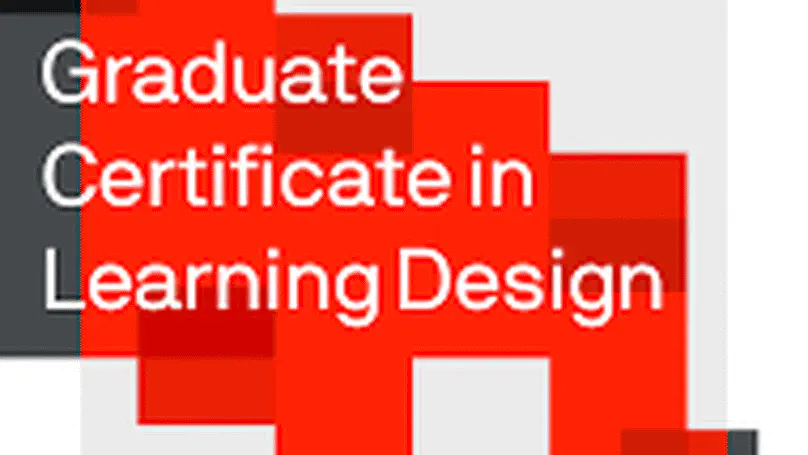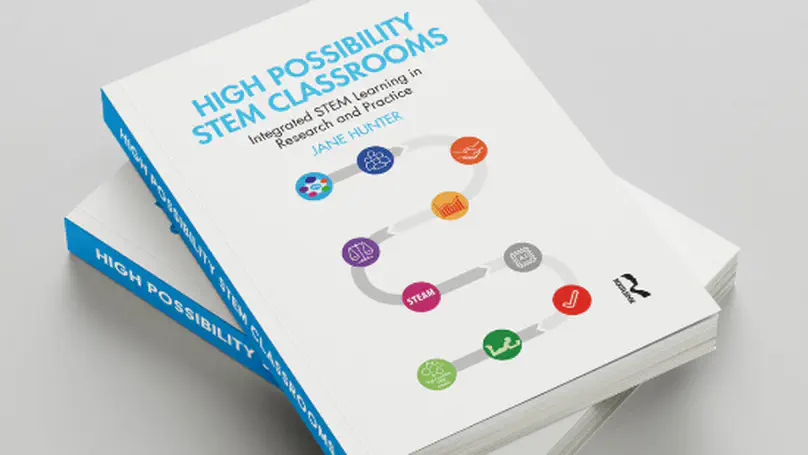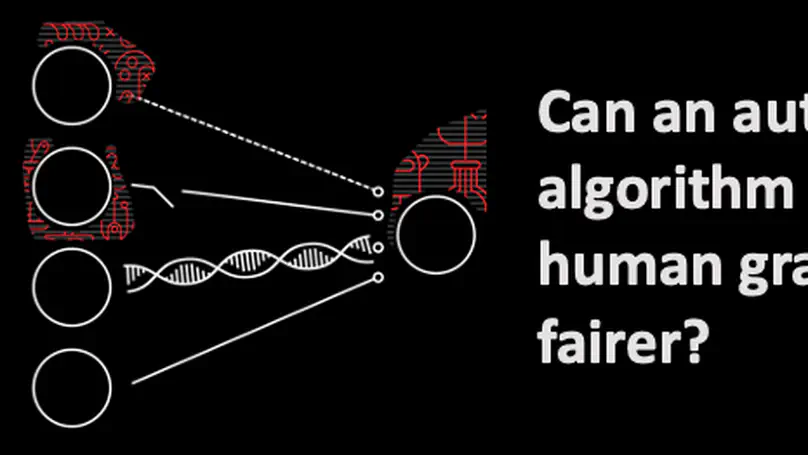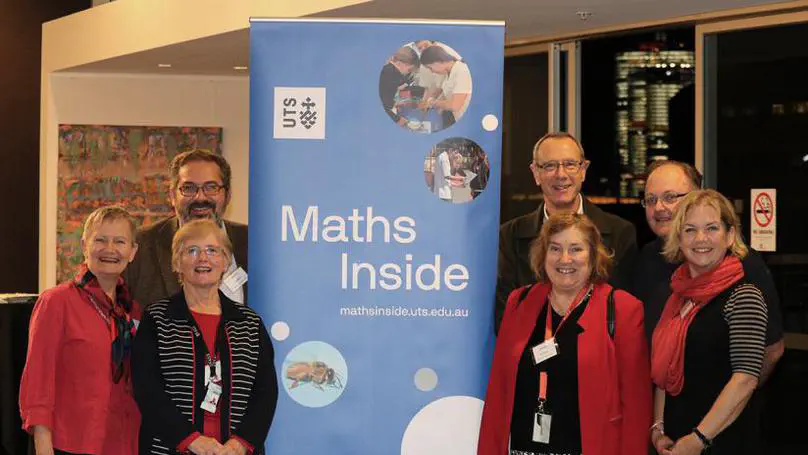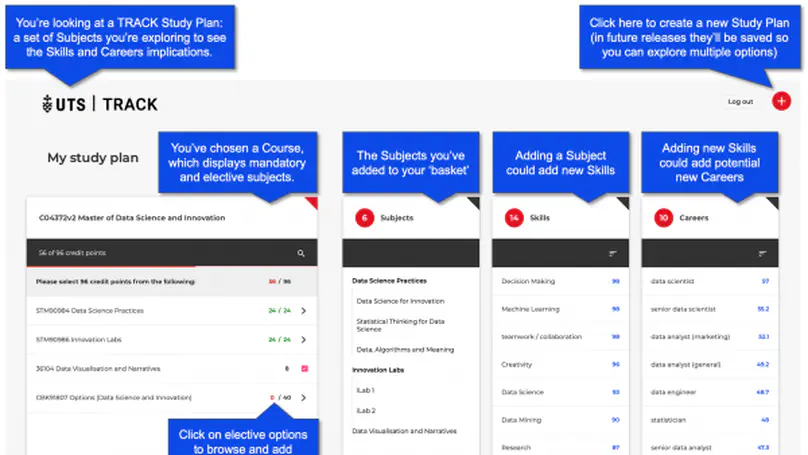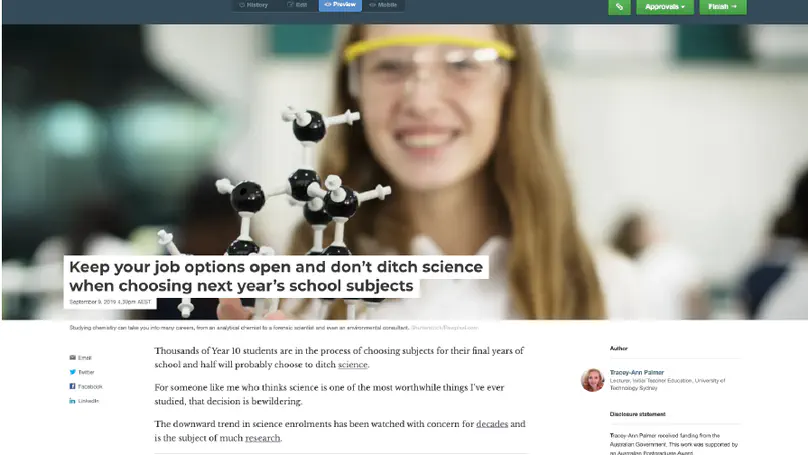Our research
Centre members investigate learning technologies, and the role of technology and data in learning, developing methods to evaluate this impact.
We view the relationship between technology and learning as dynamic, reflecting that how we learn (with technology) is fundamentally intertwined with what we learn (about technology). In the research strands below, there are 4 key themes, that address this dynamic interaction. Click the links below to read more, and view the projects related to the theme.
This strand of work is about our approaches to understanding learning needs and addressing these through technologies.
The ways technology introduces new challenges and needs in digital literacy from tackling misinformation to understanding how algorithms shape our social media; and that technologies may be used to support these literacies
That there is an impetus for us to learn new technologies and approaches to data that help us understand our world for a sustainable future, and that there are new tools to support us in this, including simulations and extended reality to develop our data literacy
That teachers play a central role in learning in society, and that their own learning needs have been impacted by digital tools, but that digital tools also offer opportunities to support teacher learning
Theme Projects
This strand of work is about our approaches to understanding learning needs and addressing these through technologies.
Understanding digital learning in a digital society
Click to read more
Modelling changing learning needs
Our research models what our learning needs around technology and data are in the context of the changing nature of work and society. We do this through data informed approaches, and close qualitative analyses of professional practices.
The Design of Technologies to Support and Understand Learning
In this area of research, centre members have developed technologies including learning analytics tools to understand student learning, and support student reflection on their learning.
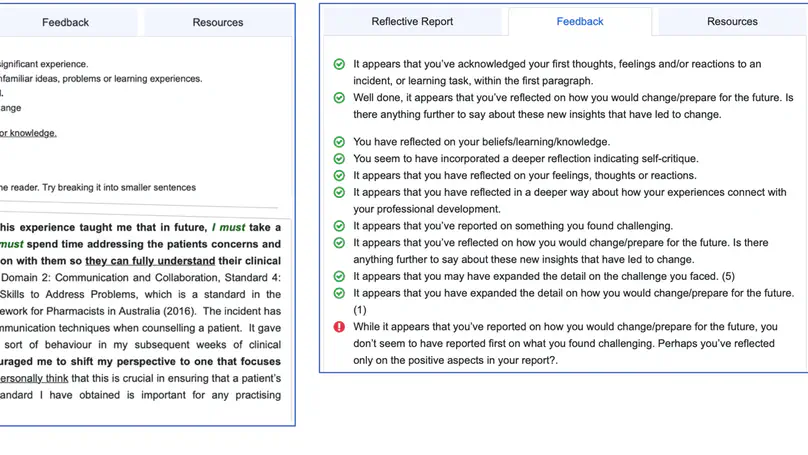
Our cutting-edge research in education leads the way in productive and ethical use of data and technology in classrooms. Drawing from the fields of learning analytics, educational data mining, and artificial intelligence in education, the core focus of the research strand is in the integration and implementation of technology to improve teaching and learning practices.
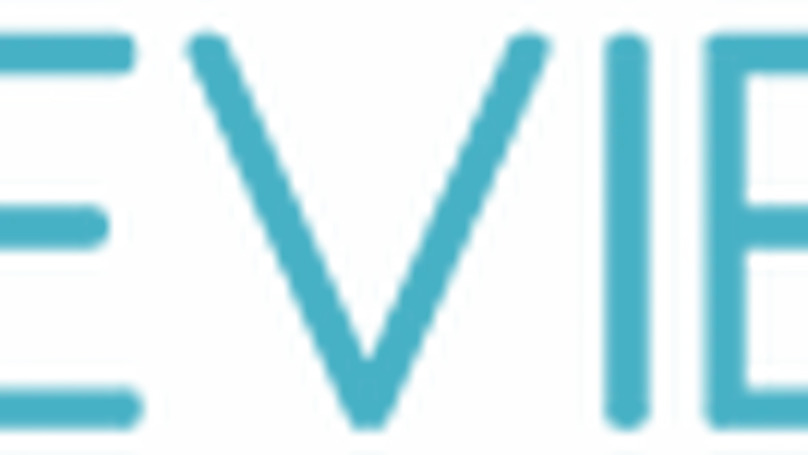
A significant body of centre research has focused on developing assessment strategies that support learning. These approaches have included: Development of the REVIEW software for self-assessment Creation of learning analytics tools, particularly focused on ‘professional reflection’ to support professional development Analysis of ‘benchmarking’ tasks and use of exemplars to support learning (you can read more about this project here ) Designing approaches to assessing 21st century competencies, and holistic assessment for university entry (see Darral’s UTS Social Impact case study ) The idea of building up student’s ’evaluative judgement’ is common across these, and described in a bit more detail below.
Theme Projects
This strand of work is about the ways that technology introduces new challenges and needs in digital literacy from tackling misinformation to understanding how algorithms shape our social media; and that technologies may be used to support these literacies
Digital learning for digital literacies
Click to read more
New literacies for a digital society
A body of work focuses on the impacts of technology on literacy, from the role of technology in civic life such as the impact of facebook on elections, to how we understand technologies to share and build our knowledge together through platforms like Wikipedia.
The role of technology in critical and creative thinking
Research in this area investigates the ways particular sets of technologies – from social media, to search engines, and specific learning technologies – impact the ways we think, particularly focusing on learners’ critical and creative thinking, across formal, informal, and workplace learning contexts.
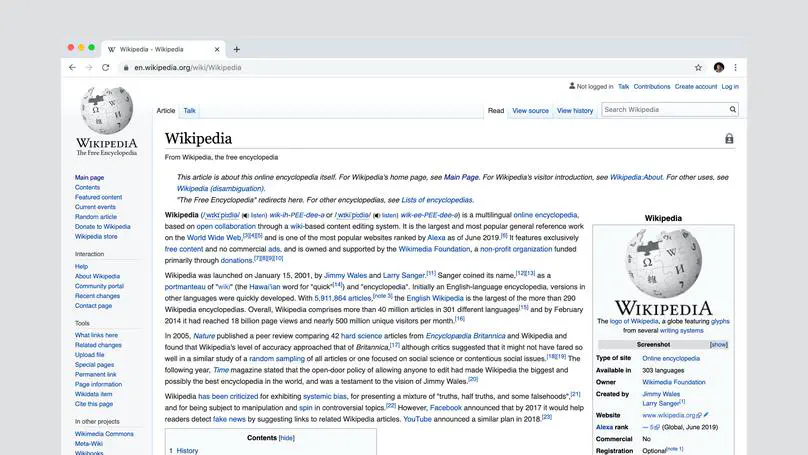
A body of work focuses on how we understand technologies to share and build our knowledge together through platforms like Wikipedia. This work recognises that platforms mediate our interaction with knowledge, in particular communities (such as those who edit Wikipedia, and the range of communities who read - and have views on - its content).
Theme Projects
That there is an impetus for us to learn new technologies and approaches to data that help us understand our world for a sustainable future, and that there are new tools to support us in this, including simulations and extended reality to develop our data literacy
Our datafied world and tools to understand it
Click to read more
The role of data literacy, numeracy, and maths subjects
A strand of our research focuses on the data, numeracy, and mathematics skills required in the 21st century in the workplace, civic participation, and day-to-day life, particularly focusing on the numeracy needs of educators.
Technology integrated learning across STEM and beyond
Research in this space has explored both the ways that technologies from particular disciplines – such as engineering tools – and other technologies drawing on mobile, immersive, and wider digital technologies, can support experiential learning across discipline areas.

We have undertaken a number of projects around teacher data literacy and design for learning, and the idea of making learning visible. Much of this work is around how teachers (across sectors) think about the data they use in their practice, and what features of learning processes and products they would like insight into.
Theme Projects
Research in this strand recognises that teachers play a central role in learning in society, and that their own learning needs have been impacted by digital tools, but that digital tools also offer opportunities to support teacher learning.
The digital teacher
Click to read more
Teacher professional development for technology and data
A body of Centre research investigates the evolution of teacher professional development needs, and approaches to addressing this. In this area, we have conducted research focusing on innovative technology-mediated learning in K-12 and teacher education contexts, particularly the specific pedagogical features or affordances of mobile devices to support learning. Other centre members have investigated a framework to understand key enablers for technology integration, grounded in exemplary teachers’ knowledge of technology integration in K-12 classrooms.
Technology for teacher professional learning across disciplines
A strand of Centre research investigates teacher professional development using technologies to support their learning. This work analyses professional’s design practices, and the ways in which technologies support design for learning, the specific affordances of learning technologies such as mobile devices and social media platforms for professional learning and developing personal professional learning networks.
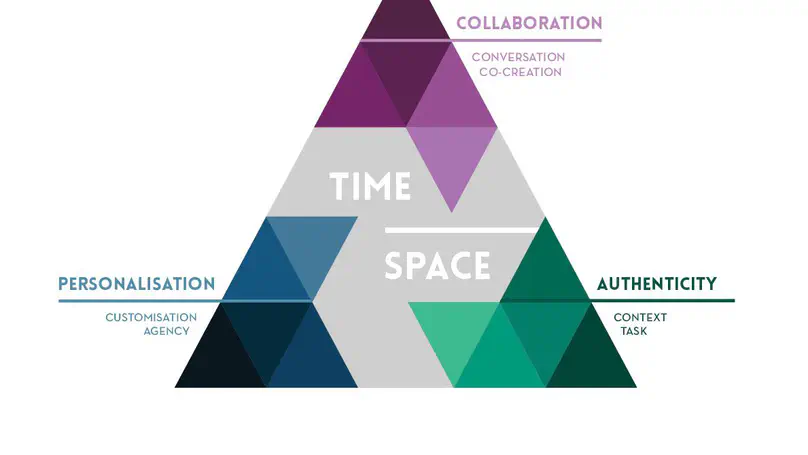
The iPAC Framework highlights three approaches that are distinctive to mobile learning: Personalisation, Authenticity and Collaboration (or ‘PAC’). How learners experience these signature mobile pedagogies is influenced by how they exploit a more flexible ‘time-space’ (or context) when learning with mobile devices.
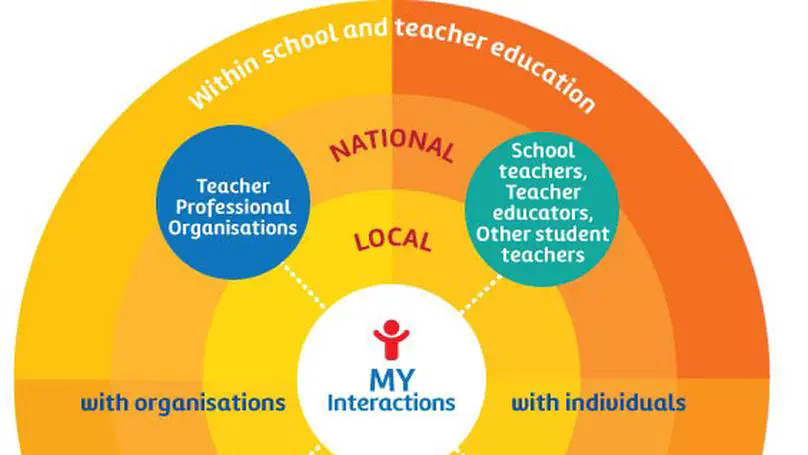
Projects in this space have investigated teacher professional development and professional learning networks (PLNs) and the role of technology in supporting these. Visit the Teacher Professional Learning Networks site In the video-case below, UTS pre-service teachers discuss their use of self-initiated online PLNs (top RHS of Table above) to support their development as teachers.

